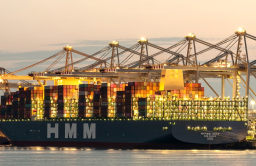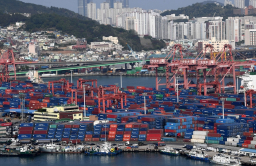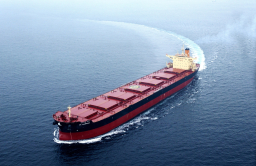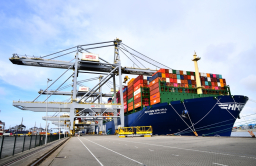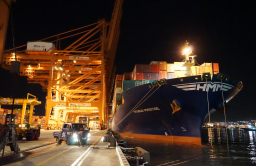-
KOSPI 2577.27 -2.21 -0.09%
-
KOSDAQ 722.52 -7.07 -0.97%
-
KOSPI200 341.49 +0.02 +0.01%
-
USD/KRW 1396 -2.00 0.14%
Korean exporters fret over looming labor strife at Long Beach, Hamburg
Logistics
Korean exporters fret over looming labor strife at Long Beach, Hamburg
Economic stakes are high for export-reliant Korea as July and August are typically busy months for exports
By
Jul 12, 2022 (Gmt+09:00)
2
Min read
News+
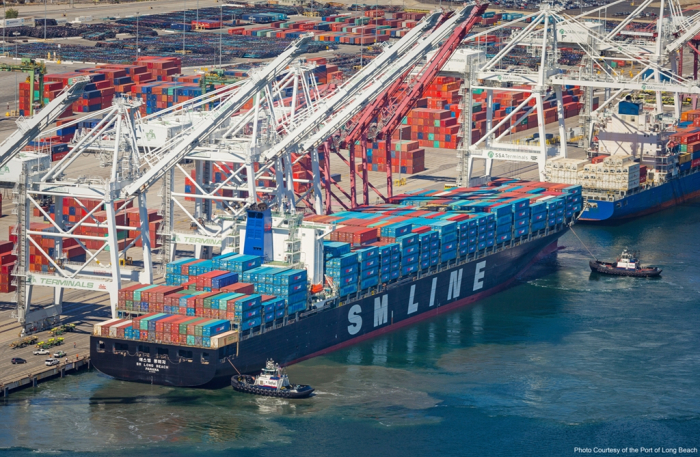
South Korea’s major companies are anxious about looming labor strife at the Port of Long Beach, California and strikes at German ports – key gateways for Korean exports to the US and Europe.
No serious logistics disruptions on both sides of the Atlantic have been reported yet, but any significant flare-up of labor action by unionized workers will hurt the export-reliant Korean economy, analysts said.
Korea’s major exporters such as Samsung Electronics Co., Hyundai Motor Co. and LG Chem Ltd. last year suffered from surging freight rates as rebounding global trade alongside easing COVID-19 lockdowns exacerbated a global container ship shortage.
Big Korean companies remain jittery over a possible resurgence of a logistics challenge, this time, from the labor disputes at major US and European ports, particularly at a time when seaborne freight rates are hovering around record-high levels.
The International Longshore and Warehouse Union (ILWU), a US union representing about 23,000 West Coast dockworkers, and their employers – the Pacific Maritime Association (PMA) – have been in talks for a new labor contract since May but no breakthrough has been reached.
Their existing contract expired on June 30, but unionized port workers said they would continue to work while engaging in negotiations with PMA representatives.
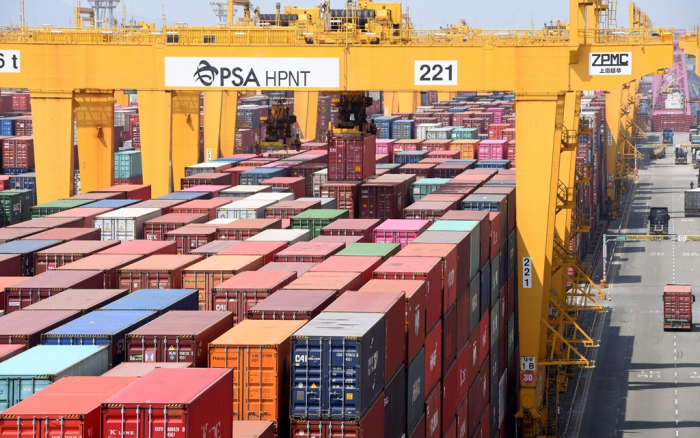
STRIKE POSSIBLE AT US PORTS
However, industry watchers said they don’t rule out a strike as automation, a thorny issue that can lead to job cuts, is included in contract talks.
A breakdown of negotiations in 2014 led to a four-month strike, they pointed out.
The current talks are important to keeping the US and global supply chain going, especially since the port of Los Angeles-Long Beach is the nation’s busiest.
Some 40% of all imported goods come through the West Coast ports, with the largest share through LA-Long Beach.
As of Monday, about 30 vessels are on standby in waters off the Port of Long Beach awaiting disembarkation approval, industry officials said.
“It took just a day or two for a ship to enter the port previously. Now, a delay of two to three weeks is not uncommon,” said an industry official.
The economic stakes are high. July and August are typically busy months for imports from Korea and other Asian countries.
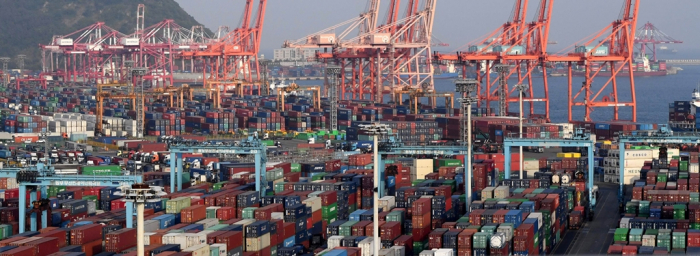
SEA FREIGHT RATES AT AN ELEVATED LEVEL
Across the Atlantic, unionized port workers belonging to the German trade union Ver.di staged strikes twice in June demanding higher wages.
The strikes, including one at Hamburg Port, the first in three decades, prompted considerable maritime shipping disruptions at affected ports.
Hamburg is one of the key ports for Korean shipping firms, including top container operator HMM Co., delivering goods to European destinations.
With the resumption of business activities amid signs of easing pandemic woes, global shipping costs have soared, sending the Shanghai Containerized Freight Index (SCFI) to near all-time highs.
The index stood at 4,143.87 as of July 8, up fourfold from 1,022.72 on Jan. 3, 2020.
Last year, when sea transportation got snarled, Korean auto parts makers and other exporters had to use an air cargo service ten times more expensive than sea freight rates to send products to the US and Europe.
Write to Jeong-Min Nam at peux@hankyung.com
In-Soo Nam edited this article.
More To Read
-
Nov 11, 2021 (Gmt+09:00)
-
May 03, 2021 (Gmt+09:00)
-
Jan 21, 2021 (Gmt+09:00)
-
Jan 22, 2021 (Gmt+09:00)
-
Nov 08, 2020 (Gmt+09:00)


